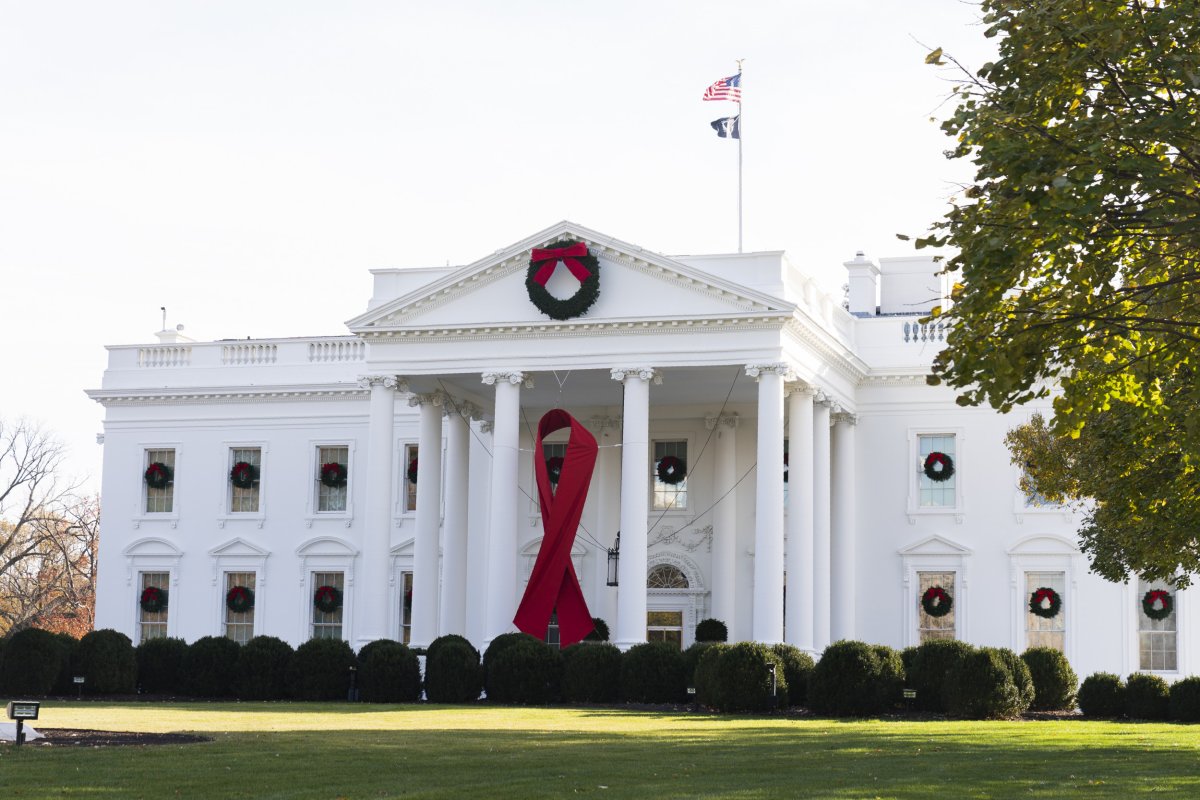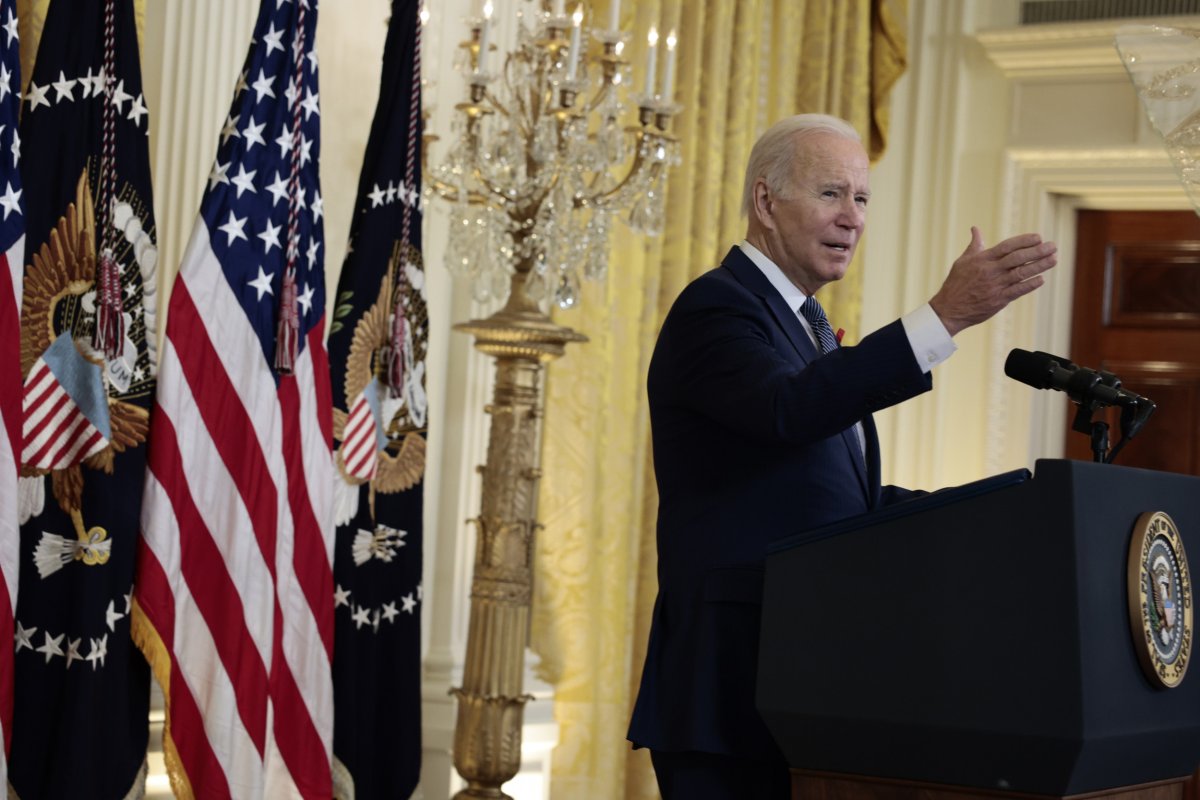President Joe Biden said the U.S. needs to confront the inequity in medicine to help end the HIV/AIDS epidemic when he announced his new strategy to combat them during the commemoration of World AIDS Day on Wednesday.
Biden called for a focus on vulnerable Americans, especially gay and bisexual Black and Latino people, who are regularly stigmatized even though they are disproportionately affected, Biden's administration said.
"I want to make sure that everyone in the United States knows their HIV status, and everyone with HIV receives high-quality care and treatment that they deserve and that we end the harmful stigma around HIV and AIDS," Biden said.
Biden's strategy calls racism a "public health threat." He acknowledged that LGBT and racial minority groups have "endured the brunt" of an epidemic that's killed 700,000 Americans and 36 million globally, The Associated Press reported. He also said he understands the country needs to improve its judgment and behavior around HIV/AIDS and those affected by it.
Biden said that over time, "structural inequities have resulted in racial and ethnic health disparities that are severe, far-reaching, and unacceptable."
To reduce the disproportion of those infected with HIV, the plan is to focus on the needs of those majorly affected, support racial justice, combat stigma around HIV, and give leadership and employment opportunities to people with or at-risk for HIV.
With current HIV treatment, people infected can have a nearly normal life expectancy and are less likely to infect others. Medications are also available to protect people at risk from infected sexual partners. That plan is called "pre-exposure prophylaxis" or PreP.
For more reporting from the Associated Press, see below.

New HIV infections in the U.S. fell about 8 percent from 2015 to 2019.
African Americans make up about 13 percent of the U.S. population but accounted for more than 40 percent of new infections. The Latino population accounted for nearly 25 percent of new infections but makes up about 18.5 percent of the U.S. population.
Historically, gay and bisexual men have been the most disproportionately affected group. They account for about 66 percent of new HIV infections, even though they are only 2 percent of the population, according to the CDC. In 2019, 26 percent of new HIV infections were among Black gay and bisexual men, 23 percent among Latino gay and bisexual men, and 45 percent among gay and bisexual men under the age of 35.
Disparities also persist among women. Black women's HIV infection rate is 11 times that of white women and four times that of Latina women.
Besides addressing racism's impact on Americans battling the virus or at risk of contracting it, the new strategy also puts greater emphasis on harm reduction and syringe service programs, encourages reform of state laws that criminalize behavior of people with HIV for potentially exposing others and adds focus on the needs of the growing population of people with HIV who are aging.
Biden expressed disbelief that some states have laws on the book that criminalize spitting in public by HIV-positive people even though it has long been proven that the virus can't be transmitted through saliva. Thirty-five states have laws that criminalize various forms of HIV exposure, according to the CDC
"We have to follow science and that means eliminating laws that perpetuate discrimination, exacerbate disparities, discourage HIV testing and take us further away from our goal," Biden said.
Before the coronavirus outbreak, health officials were celebrating how new medicines and other developments had gradually tamed HIV, prompting then-President Donald Trump to announce in 2019 a campaign to "eliminate" the AIDS epidemic in the U.S. by 2030.
But researchers have expressed concerns that COVID-19 may have halted progress in the battle against HIV, with limited data collected by the CDC suggesting there was a large drop-off in HIV testing and other related services in early months of the pandemic.
The CDC looked at data from a lab that handles about a quarter of the nation's HIV tests, comparing the numbers from March 13 through Sept. 30 last year with the same period the year before. The agency found there were 670,000 fewer HIV screening tests and about 4,900 fewer HIV diagnoses than normal. There also was a 21% national decline in prescriptions for PrEP.
The Biden administration recently announced it will host the Global Fund to Fight AIDS replenishment conference next year. The United States has contributed about $17 billion to the fund, about a third of all donor contributions.

Uncommon Knowledge
Newsweek is committed to challenging conventional wisdom and finding connections in the search for common ground.
Newsweek is committed to challenging conventional wisdom and finding connections in the search for common ground.
About the writer
To read how Newsweek uses AI as a newsroom tool, Click here.








